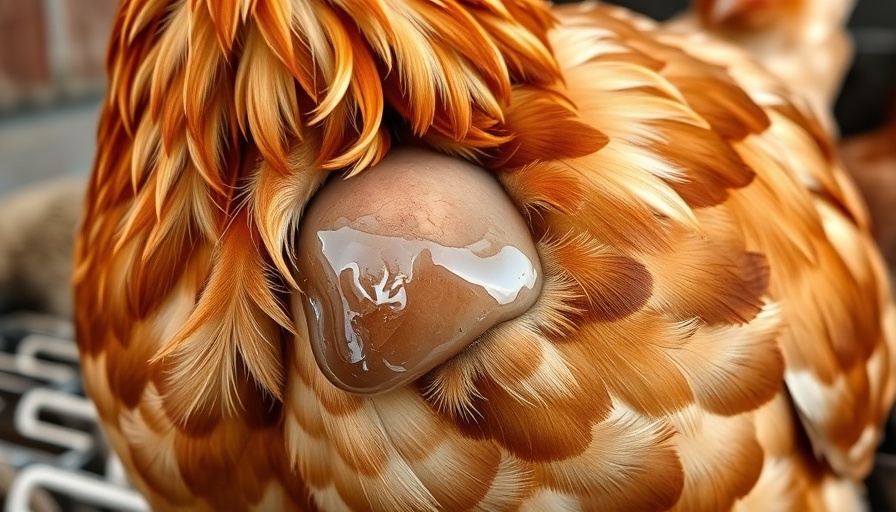
Understanding Fluid Accumulation in Chickens
When pet owners notice unusual physical symptoms in their chickens, such as a fluid-filled chest and lumps, it often raises deep concern. These signs can point to various health issues, the most notable of which is ascites syndrome, a condition characterized by fluid accumulation in the abdomen that commonly stems from right heart failure. Symptoms like lethargy and difficulty breathing are often associated with this syndrome, demanding urgent attention from avian health specialists.
The Symptoms and Diagnosis of Ascites Syndrome
Birds suffering from ascites syndrome may show increased abdominal distension or respiratory difficulties. The accumulation of fluid, also known as hydropericardium, is often exacerbated by environmental factors such as high altitude or rapid growth rates. Veterinary examinations are crucial to determine the presence of ascites through physical inspection or diagnostic imaging, which can help differentiate it from conditions like impacted crop.
What Can You Do for Your Ailing Hen?
For owners of hens displaying these symptoms, the steps to take can vary greatly based on the exact diagnosis. In some cases, manually relieving the crop can be helpful, as noted in many forums and discussions among chicken owners. Additionally, understanding the underlying causes, whether they relate to diet, environmental stresses, or genetics, can be key to providing the right care.
Common Misconceptions About Chicken Health
Many owners mistakenly believe that all health issues leading to swollen undersides are due to infections, when in reality, heart failure is a leading cause. Having accurate information from credible sources is essential. Consulting a veterinarian can provide insight into proper treatment protocols and preventive measures for maintaining your hen's health.
Preventive Measures for Healthier Hens
To mitigate the risk of ascites and other health complications, owners should focus on optimal environmental conditions for their birds. This includes providing adequate space, proper ventilation, and avoiding rapid growth through careful feed management. Ensuring that hens are not stressed during critical growth phases is vital for their long-term well-being.
Whether you’ve encountered fluid-filled symptoms in your flock or are seeking general wellness tips, being educated about avian health can transform your approach to chicken care. For ongoing support, consider joining community forums or engaging with local avian specialists.
 Add Row
Add Row  Add
Add 




Write A Comment